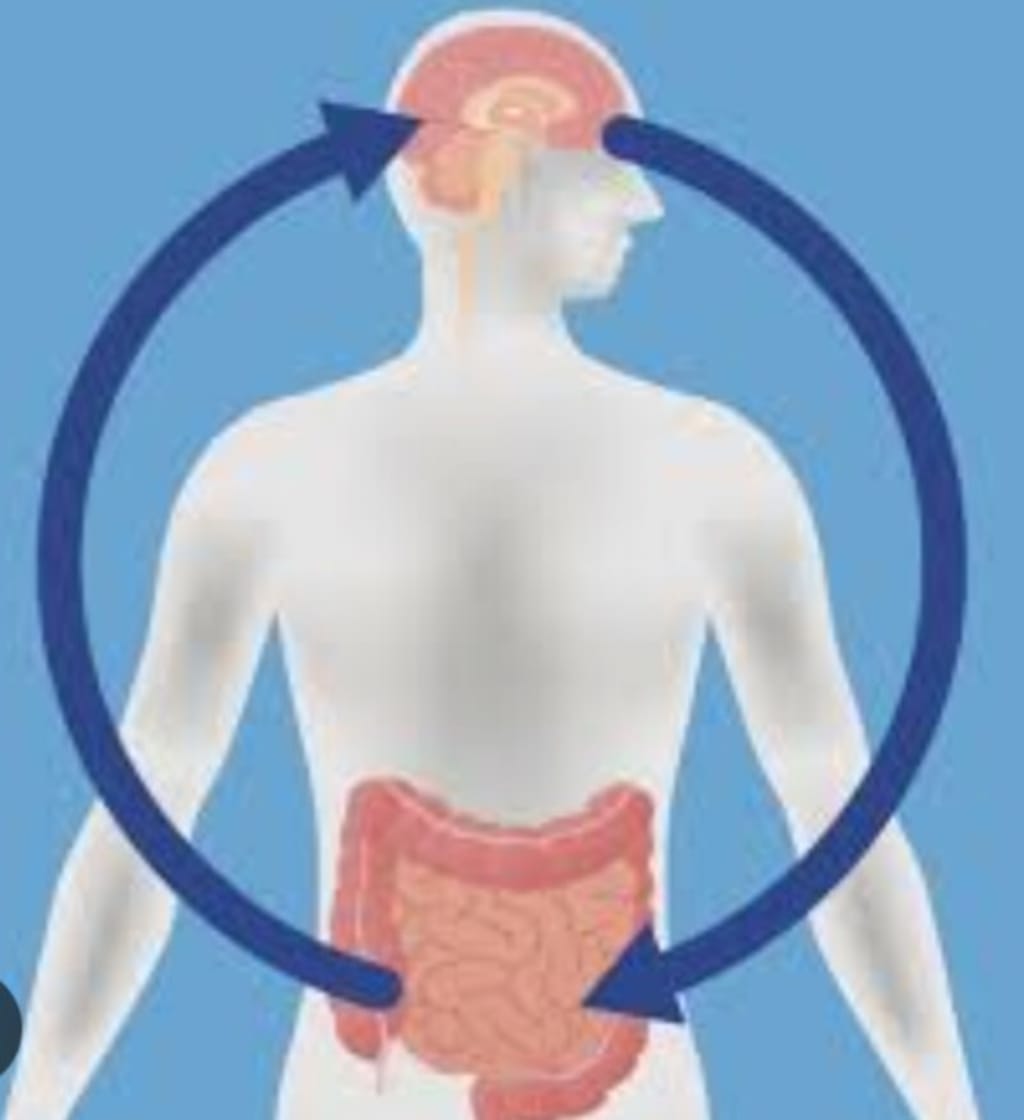Understanding the Gut-Brain Connection
How Your Gut Health Affects Your Mental Well-being

Introduction
We often think of our brain and gut as separate entities, each with its own functions and responsibilities. However, emerging scientific research is shedding light on the profound connection between the two. The gut-brain connection, also known as the "second brain," refers to the intricate communication network between our gastrointestinal system and our brain. This connection is more than just a physical link; it plays a vital role in our mental well-being. In this article, we will explore the fascinating world of the gut-brain connection, delve into the science behind it, and provide real-life examples to inspire and motivate you to prioritize your gut health for better mental and emotional well-being.
The Science Behind the Gut-Brain Connection
The gut and the brain communicate through a complex network of nerves, hormones, and biochemical signaling pathways. The main conduit connecting the two is the vagus nerve, a long cranial nerve that runs from the brainstem to the abdomen. This bi-directional communication allows the brain to influence gut function and vice versa.
The gut is home to trillions of microorganisms, collectively known as the gut microbiota. These microbes play a crucial role in maintaining gut health, supporting digestion, and modulating the immune system. Recent research has highlighted their impact on mental health and cognitive function. The gut microbiota produces neurotransmitters such as serotonin, dopamine, and gamma-aminobutyric acid (GABA), which are essential for regulating mood, anxiety, and stress levels.
Lisa who was a young professional, suffered from chronic anxiety and depression. After adopting a gut-healthy diet and incorporating probiotics into her routine, she noticed a significant improvement in her mood and overall well-being. This positive transformation motivated her to delve deeper into the science of the gut-brain connection and advocate for a holistic approach to mental health.
Gut Health and Mental Health
The state of our gut health can have a profound impact on our mental well-being. Imbalances in the gut microbiota, inflammation, and leaky gut syndrome (intestinal permeability) have been linked to mental health disorders such as anxiety, depression, and even neurodegenerative diseases like Alzheimer's and Parkinson's. Understanding and nurturing our gut health can help optimize our mental and emotional resilience.
Real-Life Example: John, a middle-aged man, experienced persistent brain fog, mood swings, and difficulty concentrating. After consulting with a healthcare professional, he discovered that his symptoms were rooted in gut dysbiosis—an imbalance of beneficial and harmful gut bacteria. With the help of dietary changes, prebiotic and probiotic supplements, and stress management techniques, he restored his gut health and regained mental clarity and emotional stability.
The Role of Diet and Nutrition
Our dietary choices significantly influence the composition and diversity of our gut microbiota. A diet rich in whole, unprocessed foods, fiber, and fermented foods promotes a healthy gut environment, while a diet high in refined sugars, unhealthy fats, and artificial additives can disrupt the delicate balance.
Including prebiotic-rich foods like onions, garlic, bananas, and asparagus nourishes the beneficial gut bacteria. Probiotic-rich foods such as yogurt, kefir, sauerkraut, and kimchi introduce beneficial live cultures to support a healthy gut microbiome. Additionally, omega-3 fatty acids found in fatty fish, walnuts, and flaxseeds have been shown to reduce inflammation and support brain health.
Sarah, a health-conscious individual, noticed a significant improvement in her mood and energy levels after adopting a Mediterranean-style diet rich in fruits, vegetables, whole grains, and lean proteins. She incorporated fermented foods like kombucha and kefir into her daily routineto promote a diverse gut microbiota. These dietary changes not only improved her physical health but also positively impacted her mental well-being.
Managing Stress and Emotional Well-being
Stress is a common factor that can disrupt the delicate balance of the gut-brain connection. When we experience stress, our gut becomes more permeable, allowing harmful substances to enter the bloodstream and trigger inflammation. Chronic stress can lead to long-term gut dysfunctions and contribute to mental health disorders.
Incorporating stress management techniques into our daily routine can help maintain a healthy gut-brain connection. Practices such as meditation, deep breathing exercises, yoga, and spending time in nature have been shown to reduce stress, regulate gut function, and enhance mental well-being.
Check out James, a busy professional, struggled with chronic stress and digestive issues. Through mindful meditation and regular yoga practice, he learned to manage stress more effectively. Not only did his gut health improve, but he also experienced enhanced mental clarity, increased resilience, and a greater sense of emotional balance.
Sleep and Gut Health
Quality sleep is essential for overall well-being, including gut health and mental wellness. Disruptions in sleep patterns, such as insomnia or poor sleep quality, can negatively impact gut function and increase the risk of mental health disorders.
Establishing healthy sleep habits, such as maintaining a consistent sleep schedule, creating a conducive sleep environment, and practicing relaxation techniques before bed, can support both gut health and mental well-being. Adequate sleep allows the body to repair and restore itself, optimizing the gut-brain connection.
Emily who was a college student, experienced irregular sleep patterns due to a hectic schedule and high stress levels. She decided to prioritize her sleep and incorporated a nightly wind-down routine. With improved sleep quality, she noticed reduced gastrointestinal discomfort and a significant improvement in her mood and academic performance.
Conclusion
Understanding the gut-brain connection is a crucial step in prioritizing our mental well-being. By nurturing our gut health through a balanced diet, stress management, healthy sleep habits, and lifestyle choices, we can positively influence our emotional resilience, cognitive function, and overall mental health.
Real-life examples demonstrate the transformative power of prioritizing gut health. Whether it's adopting a gut-healthy diet, incorporating stress reduction techniques, or improving sleep patterns, individuals have experienced profound improvements in their mental well-being by nurturing their gut-brain connection.
As we continue to unlock the mysteries of this intricate relationship, it becomes clear that a holistic approach to mental health should include strategies to support gut health. By embracing this knowledge and taking proactive steps towards nurturing our gut-brain connection, we empower ourselves to live happier, more balanced lives, where mental well-being and physical health are intertwined.





Comments
Stephenson Miracle is not accepting comments at the moment
Want to show your support? Send them a one-off tip.